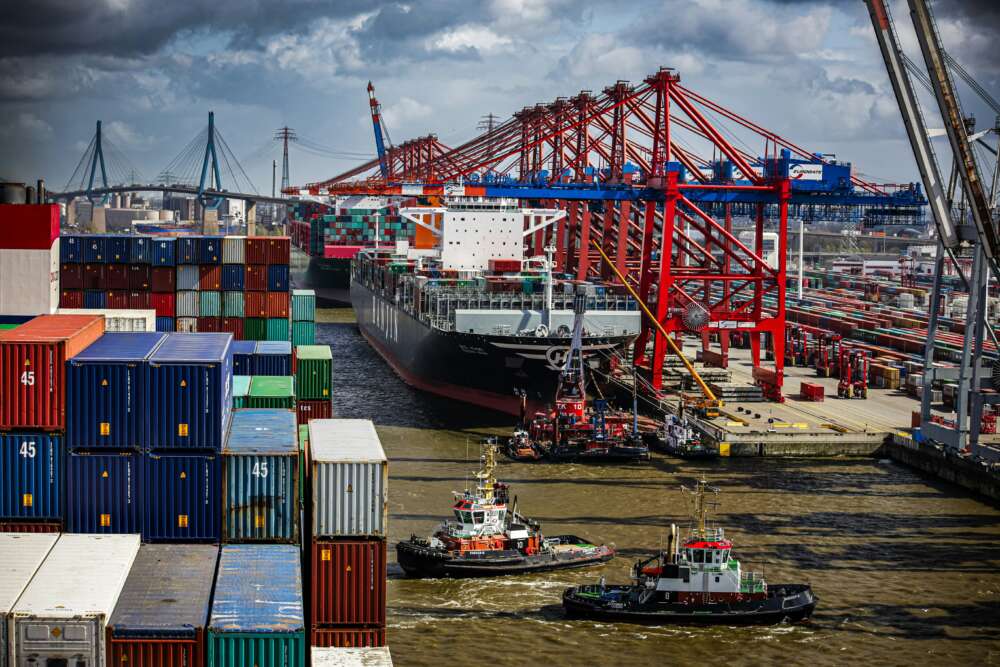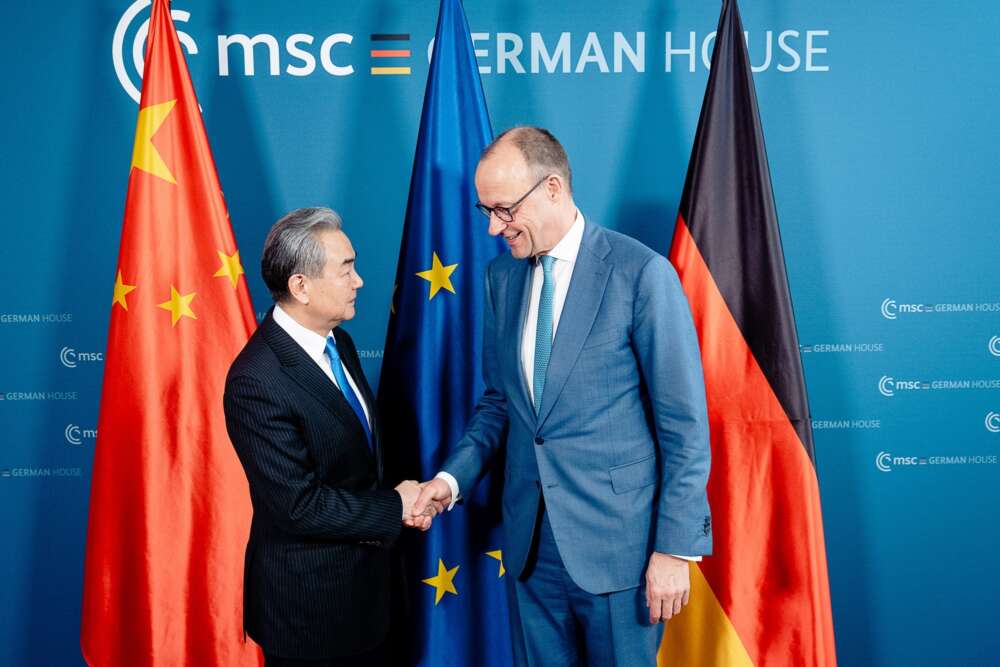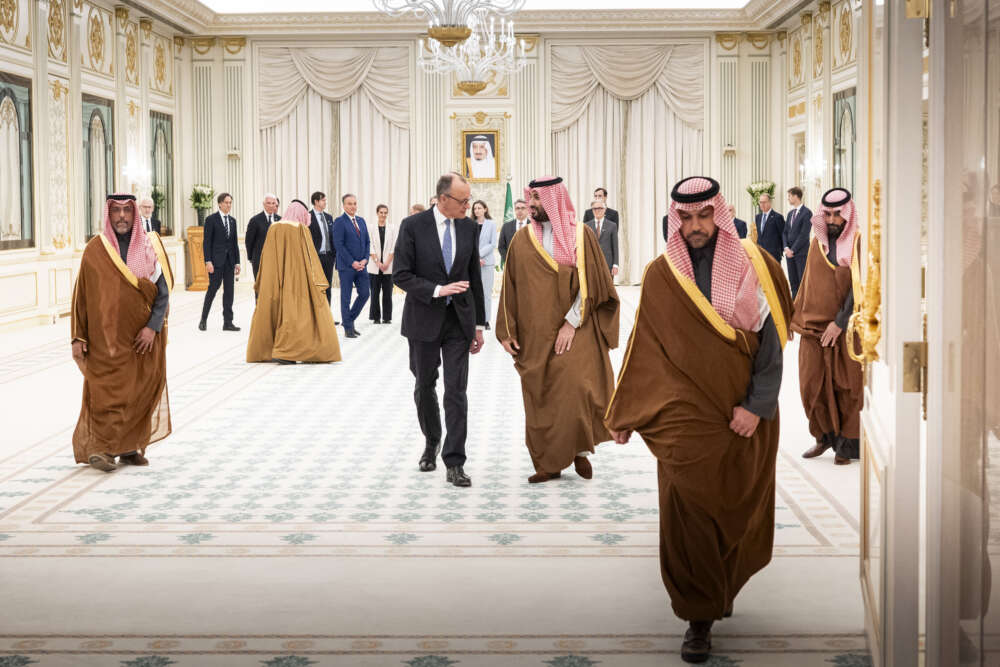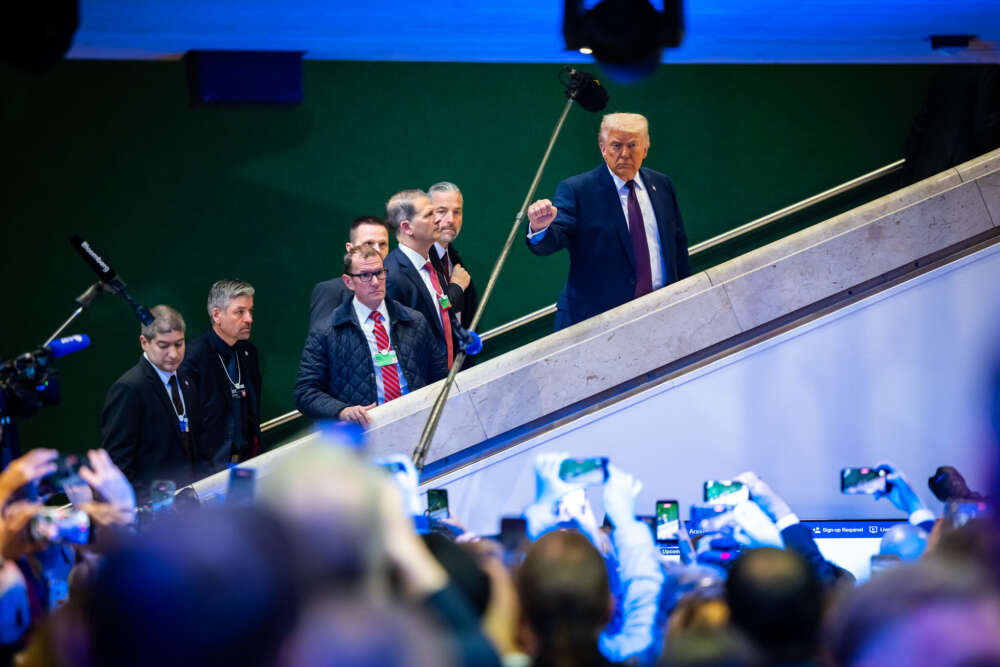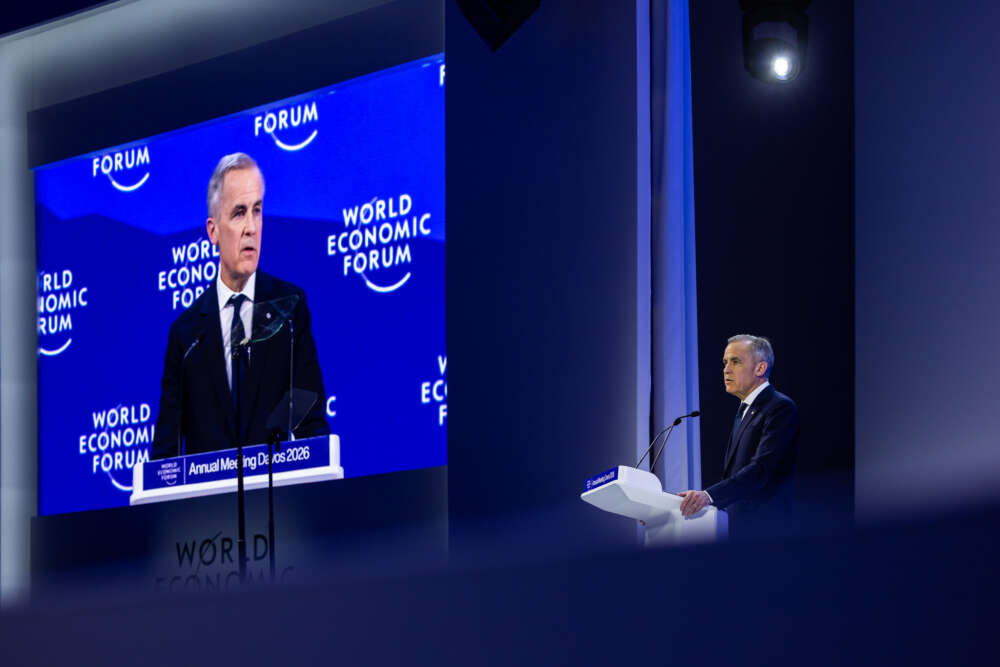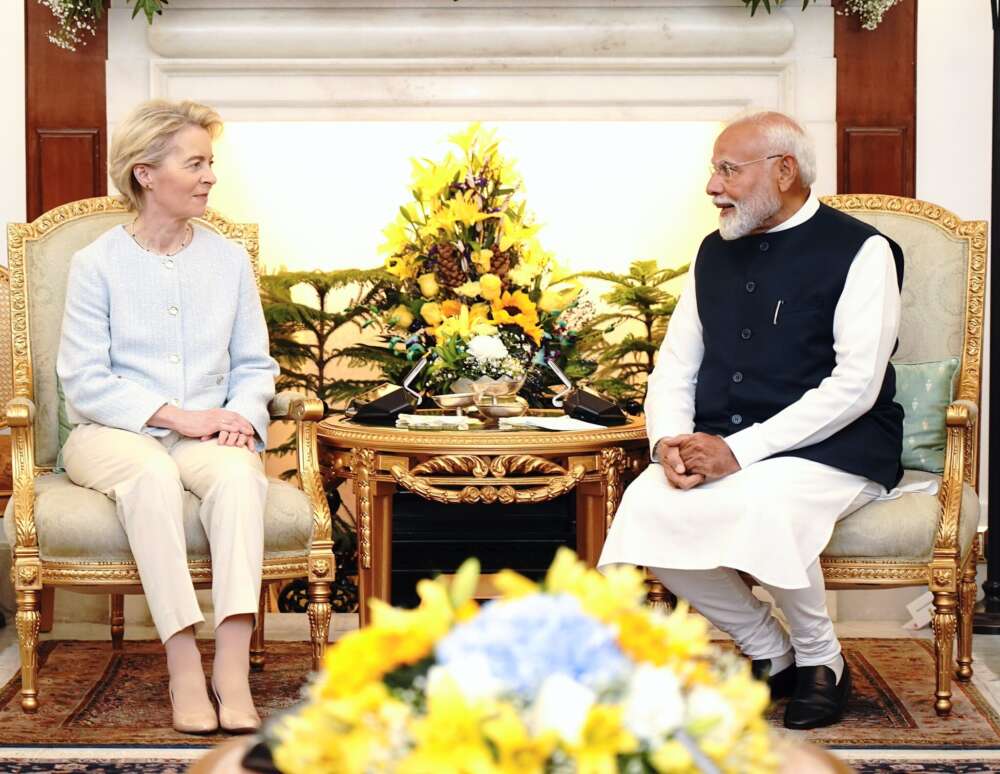Germany Votes: Reading, Listening & Viewing Recommendations for Germany’s 2025 Election

Germany is heading to the polls on February 23, 2025, for a snap federal election at a time of great global tumult: trade wars are looming, multilateral and foreign assistance systems are at risk of collapsing, the longstanding global order is being challenged, and far-right parties are being elected around the world. Meanwhile, at home, Germany is facing multiple political, economic and security challenges. The next government, tasked with navigating this volatility, will make decisions that determine Germany’s future and what role the country will play on the global stage in the years ahead.
With each party offering a distinct vision for the country, tools like the Wahl-O-Mat can help voters understand how party platforms align with their own views and values. However, campaign promises don’t always translate into action. For that reason, FragDenStaat has developed the Real-O-Mat, which offers insight into the actual voting behaviors of parties in the Bundestag during the last legislative period. Together, these tools not only help voters assess their alignment with the parties but also highlight the key issues on the table in this election — and the ones that are notably absent.
Of course, understanding the broader themes is just the first step. To dive deeper, our experts at GPPi have curated a selection of reading, listening and viewing recommendations that helped them grapple with some of the issues that matter most to them. We hope these resources will also help you learn, reflect and engage in the lead-up to this important election.
- COMMENTARY: “The mess Merkel leaves behind”, Tom Nuttall (The Economist) – EN
Tom Nuttall’s October 2021 perceptive Economist special on “The mess Merkel leaves behind” is worth re-reading. It makes clear that the now much-maligned ‘traffic light coalition’ led by Olaf Scholz inherited an already very problematic status quo — one that was worsened further by the effects of Russia’s war against Ukraine.
- BOOK: Ungleich vereint: Warum der Osten anders bleibt, Steffen Mau – DE
In the upcoming federal elections, the extreme-right party AfD will likely be the strongest party in eastern Germany (the former GDR). Steffen Mau’s book Ungleich vereint: Warum der Osten anders bleibt presents a sober, empirically-grounded look at what makes Germany’s former East different from its former West — leading you to conclude that within the broader European context, Germany’s east is actually pretty normal and offering a glimpse of what the country’s future might hold in case of a populist right-wing takeover.
- BOOK: Ende der China-Illusion: Wie wir mit Pekings Machtanspruch umgehen müssen, Janka Oertel – DE
German industry is about to suffer from what analysts have termed ‘China Shock 2.0’ – and Beijing is the chief enabler of Russia’s military machine. Still, in the run-up to the German elections, campaigners have been shockingly silent on Germany’s China policy. Janka Oertel’s excellent book Ende der China-Illusion: Wie wir mit Pekings Machtanspruch umgehen müssen makes clear why Germany’s illusions on China are so dangerous.
- COMMENTARY: “Germany Must Abandon Its Debt Brake to Make Up for the Lost Merkel Years”, Thorsten Benner (The New Statesman) – EN
Few pieces of mine have proven to be prescient. But this one from the summer of 2022 on the security risks of the German debt brake has held up very well. Germany needs a new fiscal compromise that combines spending cuts, tax increases for the rich and debt for necessary investments in Germany’s security and future infrastructure. It may haunt Friedrich Merz, the likely future chancellor, that he blocked a modest reform of the debt brake to exclude investment spending. Getting a two-thirds majority for this overdue step likely won’t be easier in the next Bundestag.
- COMMENTARY: “Zentrum für Zukunft: Warum ein Nationaler Sicherheitsrat nicht ausreicht”, Sarah Bressan (Security.Table) – DE
Germany’s last government dubbed itself the “future coalition” but over the last four years, has mostly lost sight of the future. To make sure this history doesn’t repeat itself, my GPPi colleagues Andreas Heinemann-Grüder, Philipp Rotmann and I argue for setting up a German Futures Council.
- INTERVIEW: “Reforming the German state”, Tiaji Sio (ProjectTogether) – DE
Tiaji Sio, Mission Lead at Re:Form, and the ProjectTogether movement push for overdue changes to ensure Germany’s bureaucracy is fit for the future. Even the best policies are of little value if the public sector cannot manage to make them work in today’s times.
- BOOKS: Normal, Warren Ellis & Zukunft — Eine Bedienungsanleitung, Florence Gaub – EN/DE
These books are great companion reads. Start with Warren Ellis’s short techno-thriller, which tells us where futurists and strategic foresighters may end up if they gaze into the abyss of the future for too long. It’s a funny, riveting and cautionary tale for anyone who works on the future. Finish with Zukunft — Eine Bedienungsanleitung, in which Florence Gaub shows that it is not only possible but imperative that we construct a more hopeful future for ourselves.
- BOOK: Doppelganger: A Trip into the Mirror World, Naomi Klein – EN
While it’s not specifically about German politics, Naomi Klein’s Doppelganger revolves around the idea of a dark mirror world, a space where misinformation and conspiracy theories thrive. Drawing on her personal experience of being confused with her ‘doppelganger’, the feminist-turned-conspiracy-theorist Naomi Wolf, Naomi Klein points to the challenges of speaking truth to power while navigating healthy skepticism of elites. If democratic forces are not able to make compelling political offers speaking to people’s real grievances, these constituencies will be lost to the dark mirror world in the upcoming election and beyond.
- VIDEO: Konfrontation, Markus Feldenkirchen (ARD1) – DE
Despite its slightly sensationalist title, Markus Feldenkirchen’s Konfrontation documentary series has provided fascinating insights into the realities of political Berlin and some of the personalities shaping it over the last few years. The episode with former Green party chair Ricarda Lang, published briefly after her resignation and before the end of the ‘traffic light coalition’ last year, is particularly interesting!
- POLICY BRIEF: How German industry can survive the second China shock, Sander Tordoir and Brad Setser (Centre for European Reform) – EN
Sander Tordoir and Brad Setser provide a clear-eyed analysis of how fundamentally Germany’s export-led economic model is being challenged by China’s strategic effort to unleash “new productive forces”, supported by the instruments of state-led capitalism. Their recommendations on what the next government — in close collaboration with its EU partners — can do to address this problem, make clear how far the economic policy discussion during the election campaign has fallen short of what is needed.
- PODCAST: “The Big Chill”, Lars Peter Nissen with Harpinder Collacott, Michael Barnett, and Meg Sattler (Trumanitarian) – EN
Humanitarian aid has been sorely absent from the election campaign debates – mistakenly so. Aid saves lives, embodies a commitment to solidarity and humanity, and is a core expression of fundamental values. The recent US decision to freeze foreign aid will cost lives and wreak havoc on the whole aid system — one in which Germany, as the third-largest donor, also plays a crucial role. How will this disruption unfold? This is explored in the 100th episode of the podcast Trumanitarian – “The Big Chill” featuring relevant data and direct insights from humanitarians.
- POSITION PAPER: Verantwortung übernehmen für eine gerechtere Welt, (Venro) — DE
The gap left by the US decision to halt all foreign assistance will likely be too big to fill. Still, a pressing question is whether and how other donors — like Germany — will react to mitigate the fallout. A new German government will have to face a radically different reality, in which Germany’s role is even more important, while also managing the significant pressure on the country’s federal budget. It’s no wonder German aid organizations are already calling on Germany to take responsibility for the aid system. But governmental policy aside, it is up to each of us to clearly express our values and uphold humanitarianism, as my GPPi colleague Julia Steets recently wrote in her article in Stern — a read I’d recommend returning to for encouragement in the coming months.
- BOOK: Triggerpunkte: Konsens und Konflikt in der Gegenwartsgesellschaft, Steffen Mau, Thomas Lux and Linus Westheuser – DE
- REPORT: Orientierung gesucht: Wie es unserer Gesellschaft vor den Neuwahlen geht, Jérémie Gagné, David Melches, Ben Mason-Sucher, and Anna Lob (More in Common) – DE
For weeks, divisive stances on migration have dominated the debates on the federal elections. Yet the electorate is less polarized than it seems from reading the news. Research by Steffen Mau, Stefan Lux and Linus Westheuser shows that there is a stable, ideology-free political center with balanced views on migration — extreme and emotional positions are simply overrepresented in (public) discourse. Orientierung gesucht, the report by More in Common, shows that all segments of the population can rally behind policies that increase control over who migrates, rather than reducing the numbers of migrants, pure and simple.
- COMMENTARY: “Irony Overload: Turning against the Pact”, Catherine Woollard (European Council on Refugees and Exiles, ECRE) – EN
How can a new government maintain control when Germany — far from an island state — is the geographic and political center of the EU? In terms of asylum policy, the EU’s response has been to overhaul its common system with a sweeping “Pact” on migration, set to be implemented over the next year. Its success, however, will depend on whether EU states actually adhere to the rules. Catherine Woollard of ECRE manages to say everything there is to say on the Pact in one page. Hint: turning against the Pact or moving unilaterally is unlikely to increase the future chance of compliance (looking at you, Mr. Merz!).
- BOOK CHAPTER: “The Global Compact on Refugees in Serbia and Tunisia: Exploring the Roles of EU and Domestic Policy Actors in Asylum Governance”, Angeliki Dimitriadi and Julian Lehmann (in Global Asylum Governance and the European Union’s Role) – EN
Migration control post-election will hinge on cooperating with non-EU countries — in fact, the federal government spent a year exploring the theoretic feasibility of processing asylum applications outside the EU. However, governments in these countries (just like migrants themselves!) are not passive subjects upon whom EU countries can impose their will. They have their own interests, agency and leverage. Some two years ago, my colleague Angeliki and I explored these dynamics for two countries that are — and will remain — central to the EU: Tunisia and Serbia.


